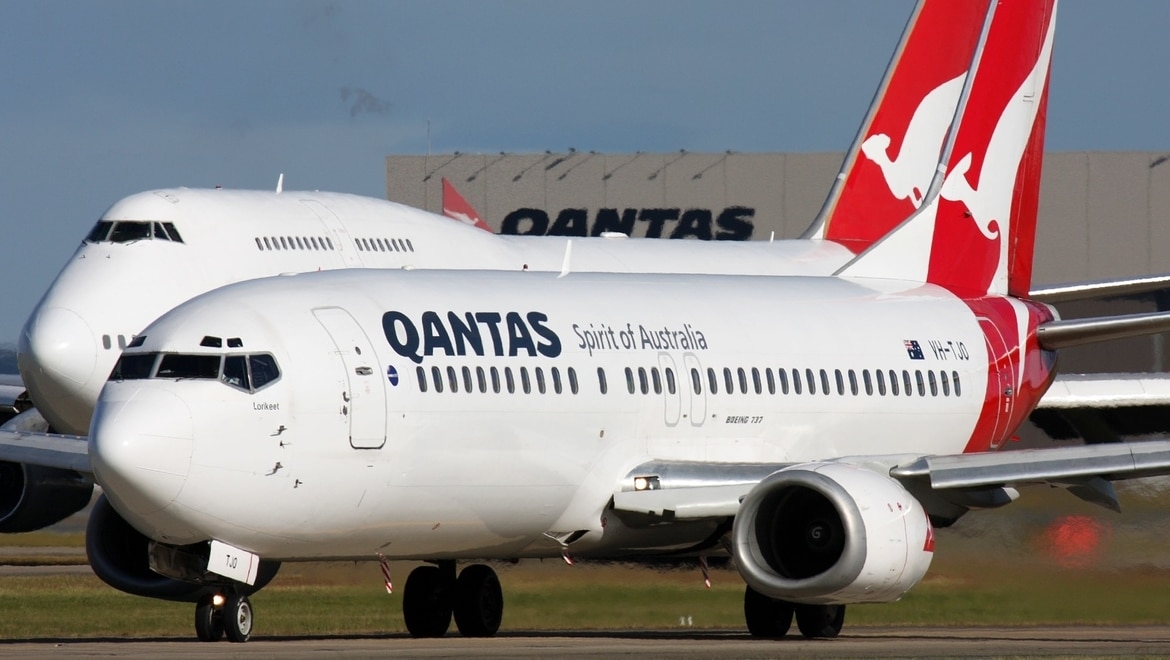
Qantas has announced that neither of its major bases in NSW and Victoria will relocate, despite last year announcing it was mulling shifting its hubs to one city.
The business hinted it received incentives to stay put including “payroll tax relief, tourism marketing funding, property rebates, training support and direct incentives”.
It comes after the business in September sparked a state bidding war when it said “anything that can move” is “on the table”, including its facilities in Mascot, Collingwood and Brisbane.
On Thursday, Qantas rowed back from its position with only minor changes to their offices planned.
The changes mean Jetstar will relocate some heavy maintenance on its Airbus A320 fleet from Singapore to Brisbane as part of a trial in 2021, with the budget airline hinting its headquarters may move from Collingwood to another location in the city “in the longer term”.
It will also expand its line maintenance engineering in Victoria as Jetstar expands its heavy maintenance in Melbourne through a partnership with Melbourne Airport, the Little Group’s Melbourne Jet Base (MJB) and the Victorian government, creating additional jobs.
Finally, it also confirmed previously announced plans to build a new flight training centre with simulators in NSW, to open in 2023, and another training centre at Brisbane Airport, with the first pilots to commence training as soon as November.
However, chief executive Alan Joyce said moving one or both of its headquarters was “always a live option” and there were times it “seemed to be the most likely outcome”.
“Aviation has probably taken the biggest hit of any industry from the COVID crisis, and Qantas has seen $11 billion in revenue evaporate because of state and federal travel restrictions,” said Joyce. “Under those circumstances, we had to look seriously at every part of our business and that’s why reviewing our property footprint became part of our recovery program.
“Some of this has been about cost-saving by rationalising office space and some is about unlocking the huge amount of future value that the Qantas Group will bring the local economy in the years ahead. We think that value deserves to be recognised.
“Ultimately, our recovery program is about putting us in a position to grow again, which is when the benefits to each state will really flow.
“Each state put a lot of effort into their offers. We thank them sincerely and we look forward to delivering on what we know Qantas and Jetstar are capable of post-COVID.
“Ultimately, once the final offers were assessed on a like-for-like basis, the set of decisions we made was the most beneficial to the Group overall.”
The announcement appears to mark something of a U-turn from Qantas’ statements in September, when chief financial officer Vanessa Hudson said the airline group was looking for “potential incentives” from states to relocate.
The news came shortly after the airline announced 2,500 ground handling jobs would be lost in addition to the 6,000 jobs across the business already earmarked for cuts.
The three-month review of bases focussed on non-aviation facilities, including the company’s leased 49,000-square-metre base in Mascot, Sydney, and Jetstar’s leased head office in Collingwood, Melbourne.
However, it flagged that “some aviation facilities”, such as flight simulator centres in Sydney and Melbourne and a heavy maintenance facility in Brisbane could move, too.
“As well as simply rightsizing the amount of space we have, there are opportunities to consolidate some facilities and unlock economies of scale,” said Hudson last year. “For instance, we could co-locate the Qantas and Jetstar head offices in a single place rather than splitting them across Sydney and Melbourne.
“Most of our activities and facilities are anchored to the airports we fly to, but anything that can reasonably move without impacting our operations or customers is on the table as part of this review. We’ll also be making the new Western Sydney Airport part of our thinking, given the opportunity this greenfield project represents.”
Qantas last full-year financial results revealed a loss before tax of $2.7 billion and an underlying profit before tax of just $124 million.















